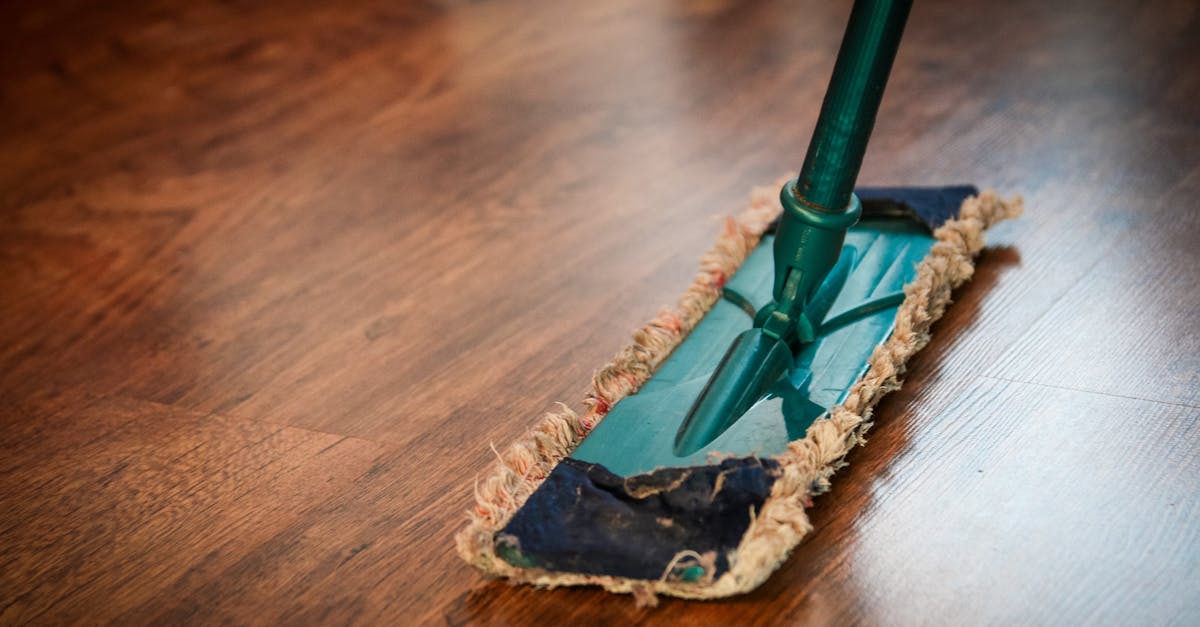Table Of Contents
Word Origin
The word “mopping” has its origins in the Old English word “moppian,” which means “to clean with a mop.” The term gradually evolved over time, eventually leading to the modern form we use today. This shift in usage demonstrates the adaptability and fluidity of language as it continues to reflect the changing needs and practices of society.
As people sought more efficient ways to clean their floors, the act of mopping became a common household chore. The word “mopping” accurately captures this action of using a mop to remove dirt and stains from surfaces. Through linguistic evolution, this term has persisted and established itself as a commonplace verb in everyday language, highlighting the importance of maintaining cleanliness and hygiene in different environments.
This is an essential article for anyone looking to learn more about the topic.
Etymology Insights
Etymology Insights
The term “mopping” can be traced back to the Old English word “moppian,” which meant to wipe or clean. Over time, this word evolved into “mop” in Middle English, referring to a utensil used for cleaning floors. The addition of the suffix “-ing” transformed “mop” into “mopping,” denoting the action of using a mop.
Interestingly, the term “moping” has a different origin, stemming from the Dutch word “mop,” meaning a joke or jest. This sense transitioned into English as a verb in the 16th century, initially signifying behaving in a silly or childish manner. Eventually, “moping” acquired its modern connotation of appearing sad, gloomy, or dejected.
Language Evolution
As language evolves, nuances in pronunciation and spelling often lead to confusion among words that sound similar. One such pair that has caused some bewilderment is “mopping” and “moping.” Originally, “mopping” referred to the act of cleaning a floor with a mop, while “moping” described a state of low spirits or feeling sorry for oneself.
Over time, however, the distinction between the two words has become less pronounced, with many people using “moping” in the context of house cleaning instead of the correct term “mopping.” This shift in language usage can be attributed to the similarity in sound and the less common use of “moping” in everyday conversations. As a result, the lines between these two words have blurred, making it challenging for some to differentiate between them accurately.
Modern Usage Trends
Mopping and moping are two words often confused due to their similar pronunciation. In modern usage, “mopping” refers to the action of cleaning a surface by wiping it with a mop or cloth. It is commonly used in household chores or commercial cleaning contexts. The word “mopping” is straightforward and directly related to the physical act of cleaning, making it a practical and commonly understood term in everyday language.
On the other hand, “moping” is a term used to describe someone in a state of low spirits, feeling dejected or sulking. Unlike “mopping,” which involves physical action, “moping” is solely related to a person’s emotional state. It is often used to convey a sense of sadness or melancholy. Despite the difference in meaning, the similarity in pronunciation between “mopping” and “moping” can lead to confusion, especially in contexts where the intended word is not clear from the context.
Synonyms and Antonyms
Synonyms for “moping” encompass a range of emotions and actions, including sulking, brooding, and pouting. Each term carries a slightly different connotation: sulking often implies a petulant or stubborn attitude, brooding suggests deep, prolonged contemplation, and pouting indicates a childish or sullen demeanor. In contrast, antonyms such as cheerful, optimistic, and lively represent a positive shift in mood or behavior from the state of moping.
Similarly, synonyms for “mopping” also convey a variety of meanings related to cleaning and tidying. Words like wiping, scrubbing, and swabbing are commonly used interchangeably with mopping, each indicating a specific type of cleaning activity. On the other hand, antonyms like neglecting, ignoring, and disregarding highlight the absence of cleaning or maintenance, emphasizing the importance of attending to chores and household tasks.
Alternative Expressions
When someone is feeling down or blue, they may also be described as “mopping around.” This colloquial expression typically refers to someone who is feeling low-spirited or despondent. It implies that the person is moving slowly or sluggishly, similar to the action of mopping the floor. In this context, “mopping” describes a person’s state of mind rather than an actual physical action.
Alternatively, the term “moping” can also be used to convey a similar sentiment. To “mope around” suggests a sense of sadness, gloominess, or sulking. While both “mopping” and “moping” are used interchangeably in everyday conversation, they carry slightly different nuances. The choice between these expressions may depend on regional dialects or personal preference, but either way, they both communicate a sense of melancholy and unhappiness.
FAQS
Is it mopping or moping?
The correct term is “mopping” when referring to cleaning floors with a mop. “Moping” is a different word meaning to be in a sad or gloomy state.
Can “moping” be used interchangeably with “mopping”?
No, “moping” and “mopping” are not interchangeable as they have distinct meanings and uses in the English language.
What is the origin of the word “mop”?
The word “mop” originated from the Dutch word “mappe” in the late 15th century, referring to a bundle of rags used for cleaning.
How has the usage of “mop” evolved over time?
The usage of “mop” has evolved from a bundle of rags to a cleaning tool with a handle and absorbent material for efficiently cleaning floors.
What are some synonyms for “mopping”?
Synonyms for “mopping” include cleaning, swabbing, scrubbing, and washing floors.
Are there any common expressions related to cleaning floors?
Yes, some common expressions related to cleaning floors include “getting the floors spick and span,” “doing a thorough clean,” and “tidying up the house.”
